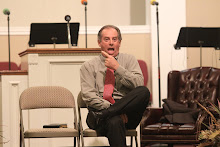Drama, What Does It Mean?
It is speculated that drama can be traced back to the Egyptian hieroglyphics. Explorers found drawings or paintings illustrating situations and events being acted out on the walls of the pyramids. So, you see, situations being acted out aren't new, but maybe that's going back too far for us. Drama was used a lot by most civilizations for entertainment. During the rule of Rome, drama and theater was used and abused to a large extent. The church disowned such entertainment because of the subject matter. Later, however, the Roman church adapted the medium to be used again. Priests became the actors and the script was the Bible. Such biblical reenactments were known to last as long as many hours to literally many days. One reference accounted a church play to last forty days. We won't be doing that, so take a deep breath and be glad you don't live during the Roman era. Let's bring the drama history lesson a little closer to home.
What does drama mean? The word "drama" in the Greek (dromenon) means,"to do". Ancient authors gave scripts to actors, but only told the actor what to do, not what to say. There wasn't any dialogue to speak, so actors relied on their expression and actions to convey the message of the play. Actors developed a character so well that they could convey the whole message and not even speak one word. This book is an effort to encourage actors to learn what it really means to develop a believable character.
The mime technique was one of the first methods of communicating through drama. The, "doing", or the action was the language that early actors used to tell the story. The book of James in the Bible tells us to be doers of the word, not hearers only. Drama truly is the visual language. You've heard the saying, "actions speak louder than words", and it really is true. As an actor you must discover the true language of drama…and that is, "doing". Traditional thinking leads you to believe that drama is a lot of speaking and not much of anything else. I hope to show you that there is much more to the drama process and developing a believable character than learning lines and speaking them when it's your turn. Popular thought among the inexperienced is that simply learning the lines makes you an actor. Of course, nothing could be further from the truth. You can't explore the character development process until you memorize the words. As a director I would commend you on your memorizing skills, but then thrust you into two weeks of blocking and note taking. I would give you assignments that would help you discover the character that I've asked you to make believable. Character development is hard work and takes more than just your ability to memorize. Memorizing is just the beginning of the character development process. Always keep in mind that drama is doing, action and movement. As we've learned more about the communication process through the years, we've added dialogue to help communicate the message in a more natural way. Adding the appropriate words to the appropriate actions makes for an enjoyable setting. One without the other is half finished. Many church plays I watch have a tendency to be half finished in their presentation. This is mainly due to the lack of experience in the acting (doing) element. Many church plays are under worked in the acting area and over the top on huge flats and props, and last way too long. I recently attended an Easter play that lasted over three hours. That's far too long for a single setting.
8.
Let's get back to our subject in this session. As you proceed through the character development process, always keep in mind that drama is doing…action…movement.
The Dramatic Approach
We all know how music can draw people into the process of worship. Music is usually less offensive than preaching. Drama does the same thing. However, drama invites people into the process in a different way. Drama in the church offers an entirely different atmosphere. People will come to the play when they won't come to hear you preach. In drama, the audience enters into the arena of worship when they themselves feel comfortable with it and they decide it’s time. They laugh because they decide it’s funny. They cry because they decide to do it. Drama is usually the least offensive communication and often convinces the listener to relax. The visitors in your audience are more apt to attend your drama rather than your traditional church service because they feel they won't be preached at. Easter and Christmas is generally when we have the most visitors because they expect to come and see a play or musical in an inoffensive atmosphere. Since that is true maybe we need to do drama more times throughout the year. I know a few churches actually minister with drama every Sunday morning. It didn't happen over night, but slowly evolved into what it has become today. People expect to see a short sketch that either introduces the theme of the pastor's message or a concept that the leadership is trying to communicate to the whole church body. With the right organization and discipline, an on going drama ministry can greatly enhance the evangelistic efforts as well as bring variety to the church services.
Now churches are seeing the drama concept being an effective tool to take the gospel message on the street or into the community. The last five years I have had the opportunity to minister on busy street corners and parks of major cities. I was amazed at the response. Again, because the atmosphere is totally in the control of the pedestrian, people are okay with stopping and watching. They can leave when they want or stay if they want.
Thursday, June 3, 2010
Subscribe to:
Post Comments (Atom)


No comments:
Post a Comment